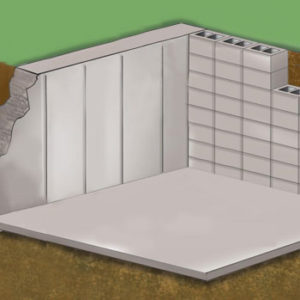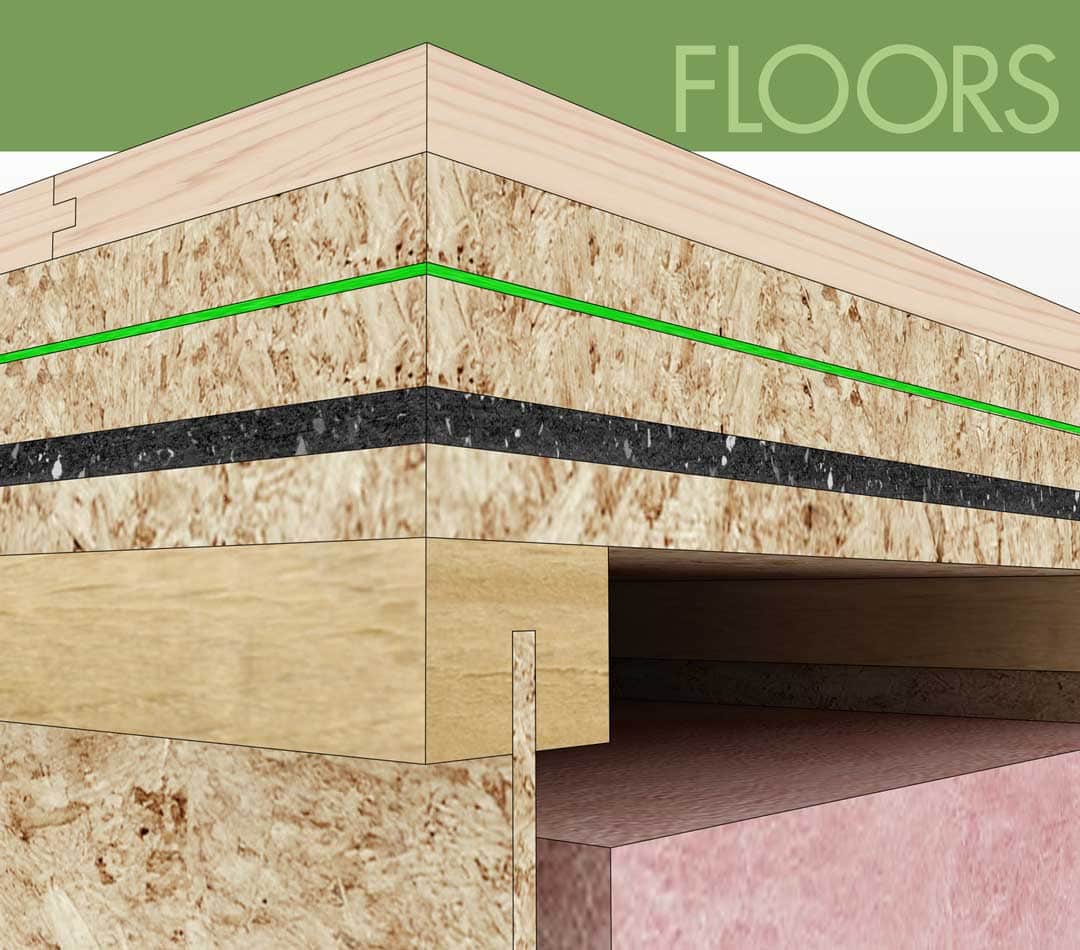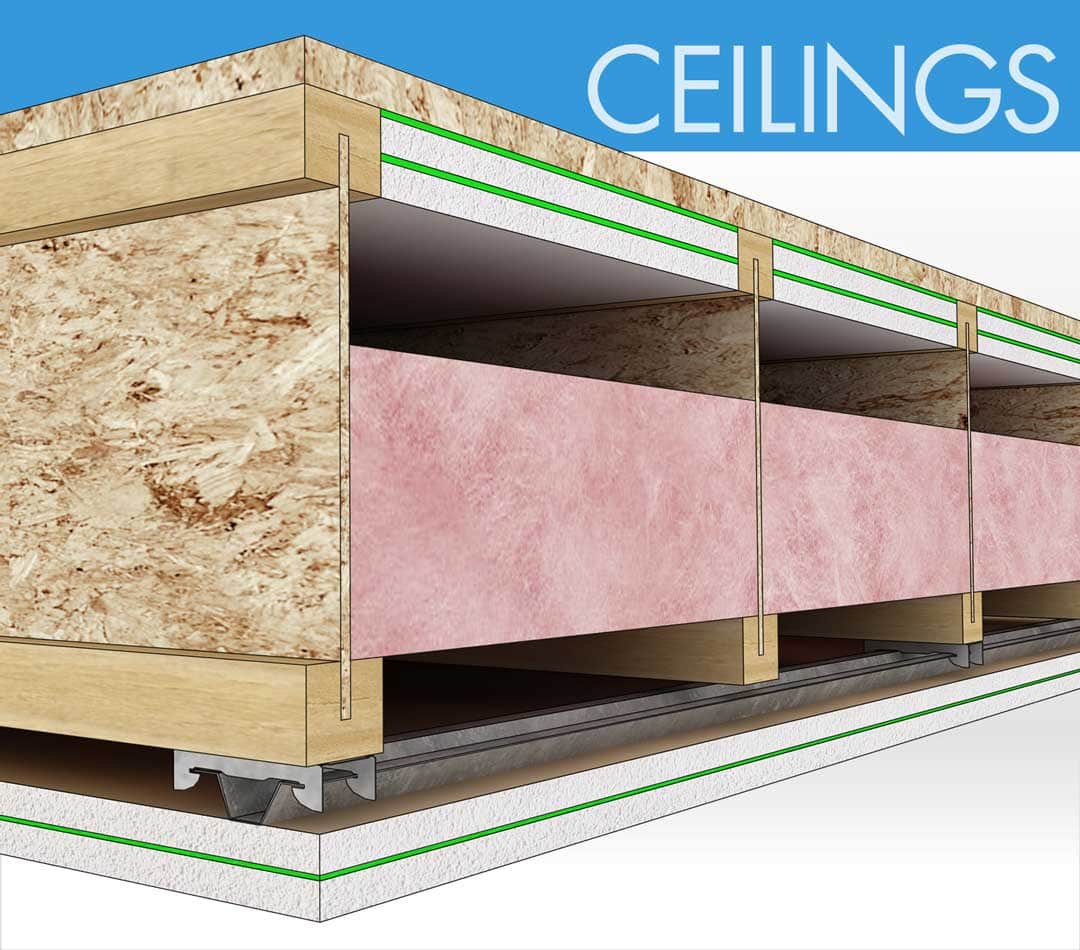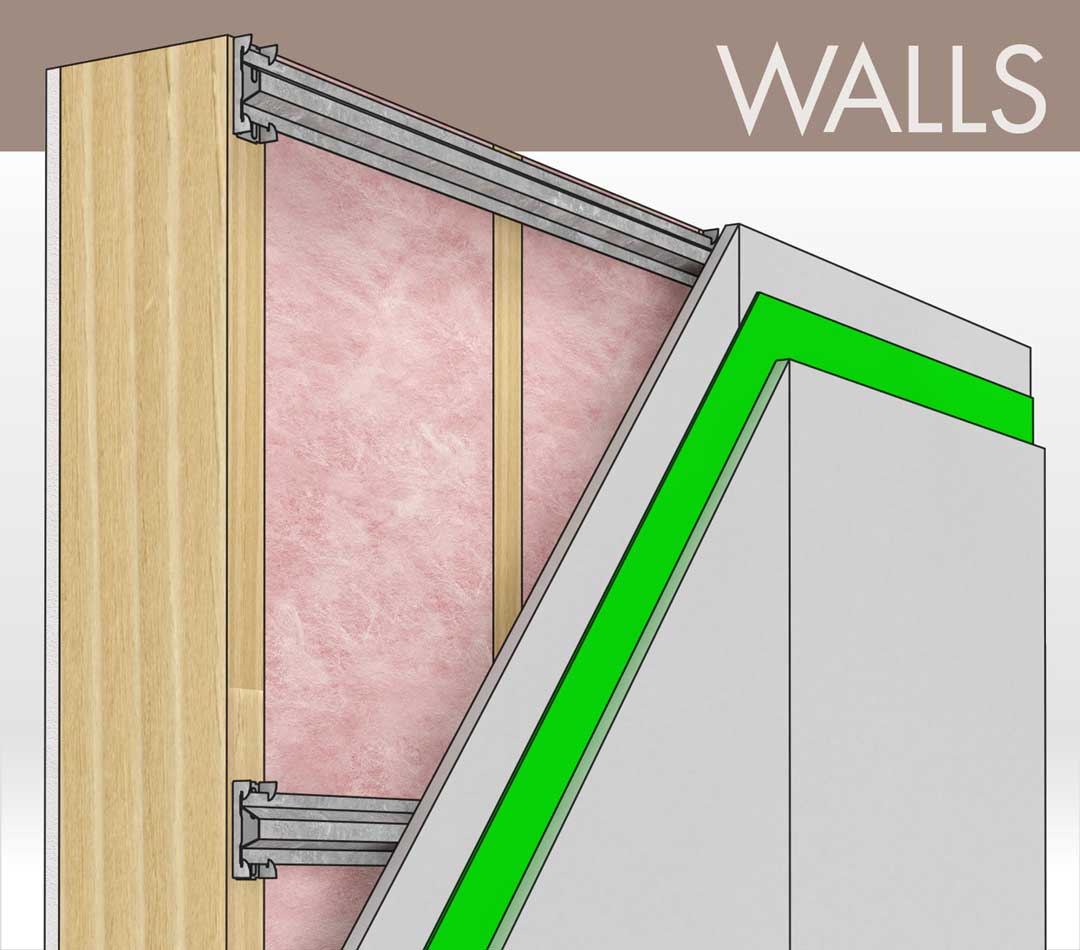Do I need to soundproof my foundation walls?
 If you’re building a room in a basement, you’ll have some walls that are built next to the foundation walls. And you might be wondering what you need to do in terms of soundproofing.
If you’re building a room in a basement, you’ll have some walls that are built next to the foundation walls. And you might be wondering what you need to do in terms of soundproofing.
Basically, we’re not worried about sound leaking through the foundation into the surrounding soil. We’re worried about sound traveling straight up through the floor joists and into the room above. Soundproofing foundation walls might not seem necessary, then, but in reality it's important to do it.
A quick explanation. If you were to build no wall against the foundation, your ceiling would have to be lowered sufficiently to have the ceiling drywall directly intersect the foundation, and then sealed to the foundation. That's fine, but you lose a few inches of ceiling height. Further, most of us refinishing our basements would prefer to not have any cement walls at the end of the day, so it's pretty safe to plan for soundproofing your new finished walls.
The area between the new wall and the foundation wall is a classic flanking pathway, meaning that space carries sound to the joists and straight up, uninterrupted. To better understand flanking path review the article Understanding Flanking.
For soundproofing theaters and recording studios, all walls, ceiling, and floor (unless it’s a slab) need to be fully treated. For soundproofing condo walls or ceiling, the sound levels are lower (lower dB) and typically of a higher frequency, so a single wall or ceiling-only solution can work fine and reduce a great deal of noise.
Check out these guides for more information:







